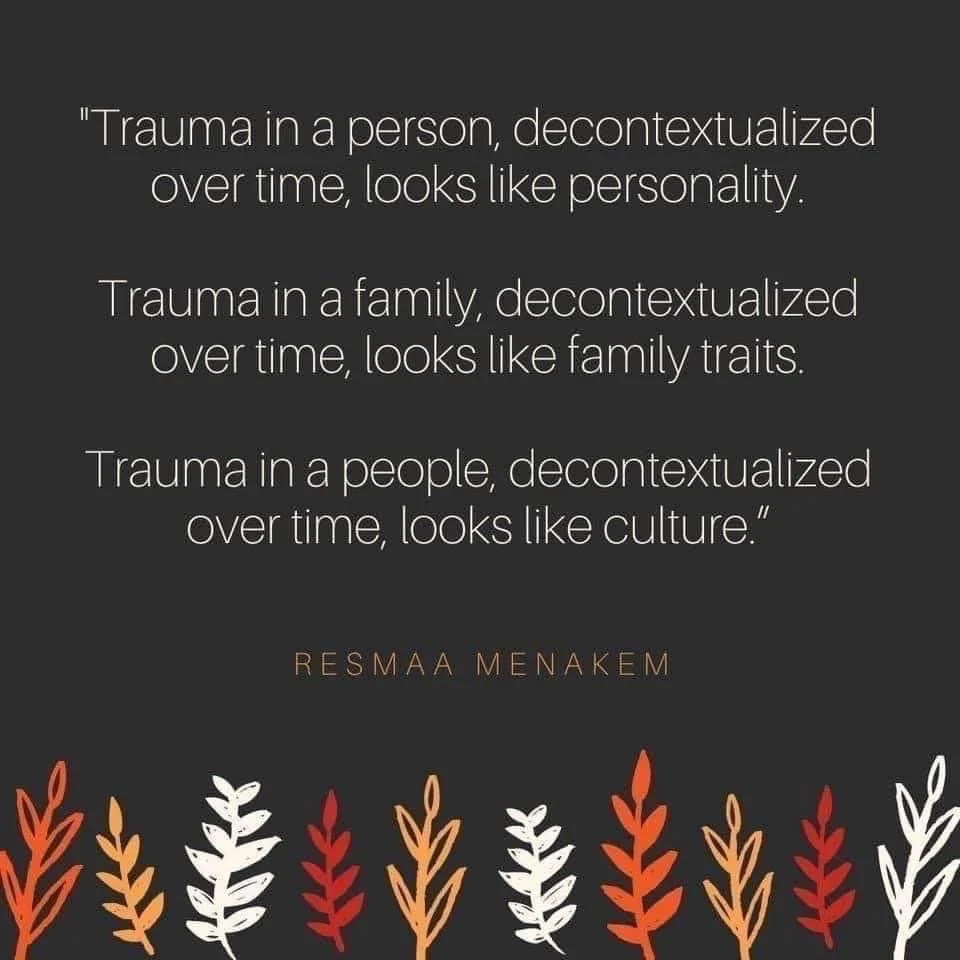
Trauma
Trauma-Specific Treatment
In addressing trauma symptoms, I use both a somatic (body-based) approach to address the effects of trauma remaining in the body; and Cognitive Processing Therapy (CPT) to address unhelpful beliefs related to the trauma experience.
Read more about how the nervous system experiences trauma and why somatic interventions are effective trauma treatment. The American Psychological Association (APA) has a longer description of Cognitive Processing Therapy, as does the VA which researched and manualized the program.
Other evidence-based trauma treatments that I am trained in: Psychological First Aid and Seeking Safety.
What is a trauma-informed counselor?
Being “trauma-informed” is a systems-wide intervention meant to use knowledge about trauma to guide treatment and service delivery and implementation. That is, a trauma-informed counselor engages in ongoing training and:
Shifts the focus from “What’s wrong with you?” to “What happened to you?”
Assesses for and recognizes the present-day impacts of prior traumatic events
Helps you understand the origins of your behavior
Explains the effects of trauma on the brain and emotions
Identifies your unique strengths and resilience that support you in recovery
Teaches you self-care skills to reduce trauma symptoms such as emotional arousal
Avoids re-traumatizing you while supporting you in healing
Prioritizes safety in the office environment, therapeutic relationship and grounds you to the safety you have in the present moment
Emphasizes your choice in the counseling experience and considers your preferences
Utilizes aspects of Psychological First Aid; teaches techniques related to mindfulness, grounding, breathing and relaxation
Engages in appropriate self-care, supervision and ongoing training to provide ethical care
“I can be changed by what happens to me. But I refuse to be reduced by it.”
— Maya Angelou



